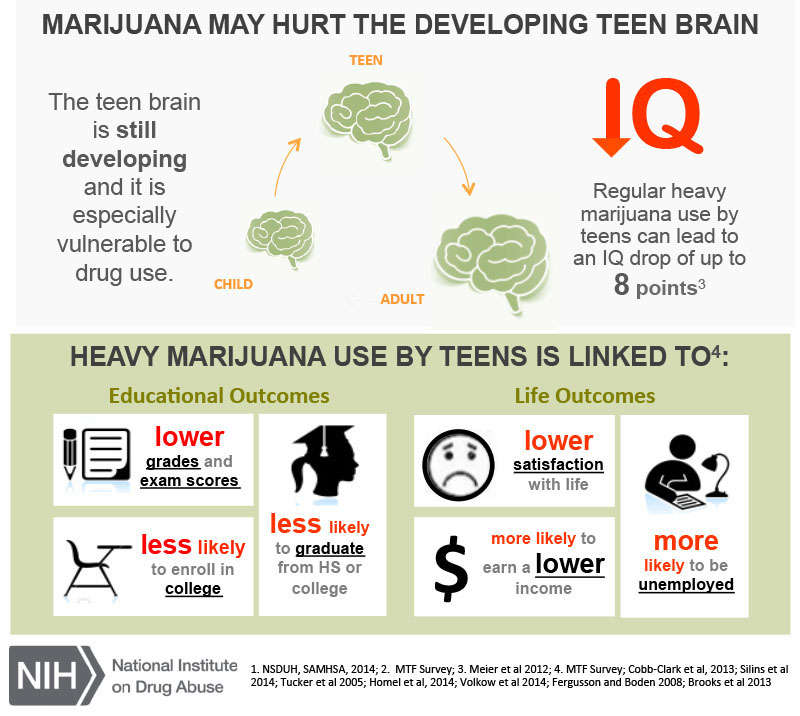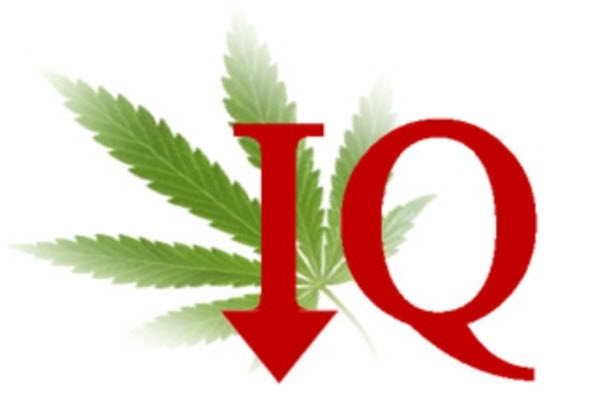What Parents Should Know about Marijuana
 American College of Pediatricians’ 25 February 2019
American College of Pediatricians’ 25 February 2019
Family First Comment: If you are a parent who wants your teenager or child to grow up with a healthy, drug-free life, you are unfortunately in a kind of war zone. Why is it a war zone? Because there are many adults and teenagers who would promote marijuana and other drug use to young people. To help teens avoid the pitfalls of drugs in their youth, parents must take some pretty bold stands.
Here’s the info you need – from concerned doctors….
If you are a parent who wants your teenager or child to grow up with a healthy, drug-free life, you are unfortunately in a kind of war zone. Why is it a war zone? Because there are many adults and teenagers who would promote marijuana and other drug use to young people. To help teens avoid the pitfalls of drugs in their youth, parents must take some pretty bold stands. Marijuana is the most commonly used illegal drug for teenagers. (2) They are more likely to use marijuana than to use tobacco. (6) Marijuana’s effects lead to immediate and long-term problems of which many teens are unaware.
How Many Teenagers are Using Marijuana?
- According to survey results in 2016, 38% of high school students report that they have used marijuana at some point in their life (1).
- Even more alarming, 68.9 % of high school seniors reported through survey that they do not think that regular marijuana smoking is harmful (2)!
According to the National Institute on Drug Abuse for teens, “Recent public discussions about medical marijuana and the public debate over the drug’s legal status is leading to a reduced perception of harm among young people.” (2) The increased commonality of the drug may make it seem less threatening to teens. One-third of teenagers who smoke marijuana and that live in states with legalized medical marijuana use, obtain their marijuana from adults with prescriptions. Additionally, some teens think it can’t be very bad because it is “natural”, but many natural things like cocaine, heroin, and tobacco are far from safe. (2)
Teenagers’ reported unawareness of the harm of marijuana has drastically increased since the 1980’s. The irony of this is that the harm and potency of marijuana has also increased since then. The concentration of THC (the chemical in marijuana that produces the most mind-alternating effects) is now about 3 times stronger than it was in the 1990’s! (2).
Marijuana is Both Temporarily and Permanently Harmful to Adolescents
Because adolescents’ brains are still developing, marijuana and other drug use can cause even more lasting damage to a teenage brain than to an adult user’s brain.
- Marijuana impairs adolescents working memory, problem solving, decision-making skills, and coordination. (2) When using marijuana, a person’s heart rate increases, causing the heart to work harder, causes difficulty in sensory perception, and creates breathing problems. (3) Marijuana decreases motivation, can lead to confusion and anxiety, even panic attacks, and often results in personality changes. (6)
- For adolescents, there is research showing that marijuana use alters the structure and chemical composition of the brain, and IQ, in a way that can be permanent.
- Adolescents who use marijuana are more likely to get lower grades, drop out of school, have physical and mental health problems, struggle with relationships, and have less future career success. (4) They are at increased risk for suicide and to develop psychoses. (6)
- Signs of marijuana use include (6):
- silly behavior and frequent laughing associated with the “high” created by THC,
- red eyes or eye dryness,
- increased appetite,
- irritability
- lack of motivation, reduced interest in things
- trouble with memory
- smell on clothes or use of deodorizers
- dizziness
- Unexplained money or stolen money
How Can We Make a Difference?
Research shows that children who report that their parents have serious conversations with them about drugs are around 50% less likely to abuse drugs. (5) It is essential to start early in explaining to children the consequences of marijuana use. Be open with them and listen to them.
Children whose parents use illegal drugs or who are addicted to cigarettes or alcohol are more likely to do the same. Taking steps to quit has great benefits for your child.
Helping your child to be involved in an extracurricular activity or hobby is a great way to give them a place to make good friends, offer them motivation to take care of themselves, and increase their confidence.
Teenagers who are depressed or dealing with trauma are more likely to abuse drugs. (4) Help them to find appropriate outlets or professional counseling to deal with the normal emotional strain of adolescence and any chronic conditions they may have.
https://www.acpeds.org/what-parents-should-know-about-marijuana
 Keep up with family issues in NZ.
Keep up with family issues in NZ.
Receive our weekly emails direct to your Inbox.






